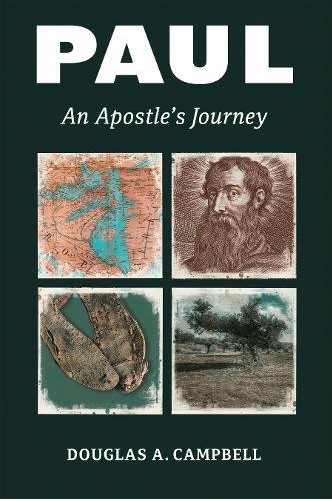 Part Two (Ch 5-7) of the new book by Peter Enns, The Evolution of Adam: What the Bible Does and Doesn’t Say about Human Origins, turns to Paul’s Adam in the context of Paul’s theology, Paul’s Christology, and Paul’s view of scripture. Chapter 5 introduces the topics, Chapter 6 looks at Paul as an ancient interpreter of the Old Testament, and Chapter 7 looks at Paul’s Adam. One of Enns’s key conclusions is that Paul’s Adam is not the Adam of Genesis or the Old Testament.
Part Two (Ch 5-7) of the new book by Peter Enns, The Evolution of Adam: What the Bible Does and Doesn’t Say about Human Origins, turns to Paul’s Adam in the context of Paul’s theology, Paul’s Christology, and Paul’s view of scripture. Chapter 5 introduces the topics, Chapter 6 looks at Paul as an ancient interpreter of the Old Testament, and Chapter 7 looks at Paul’s Adam. One of Enns’s key conclusions is that Paul’s Adam is not the Adam of Genesis or the Old Testament.
There are a number perspectives that make sense out of the story of Genesis 2-4 in the context of the Old Testament. Enns elaborates on three in particular in this book.
(1) The story of Adam and Eve is an ancient story of origins, using the conventional wisdom of the day to make theological statements about Israel and about Israel’s God.
(2) The story of Adam is telling the story of the proto-Israelite rather than the proto-human. After all, those who compiled and edited the text we call the Old Testament in the exilic and post-exilic periods were concerned with answering questions about Israel and Israel’s relationship with Israel’s God. Any questions concerning human origins were secondary.
(3) In Chapter 5 Enns brings up a third perspective that complements the first two. The text of Genesis 2-4 is, he suggests, an example of Old Testament wisdom literature. This approach to Genesis has roots in the second century beginning with the writings of Irenaeus of Lyon and is still common in Eastern Orthodox thinking. When Genesis 2-4 is read side by side with Proverbs several different elements help make this connection. Elements of shrewdness and cunning play a key role, the serpent is more cunning than any other creature and outwits Eve. Eve lacks wisdom and attempts to fend off the serpent on her own before being deceived by the serpent’s half-truths.
Adam and Eve give in to their childish impulses, listen to the cunning serpent rather than to their Father and choose the path of foolishness which leads to death, rather than the path of wisdom, which leads to life. Adam and Eve’s disobedience is a failure to fear God.
Following the path of wisdom yields life. The Adam story depicts this as maintaining access to the tree of life. Likewise in Proverbs wisdom leads to life, and wisdom is referred to as “a tree of life to those who lay hold of her” (3:18; cf. 11:30). This is why Adam and Eve, when they take their own path toward wisdom and eat the forbidden fruit, are barred from eating of the tree of life. (p. 90)
Does the possibility that Genesis 3 is wisdom literature make sense?
Is the Adam of Genesis Paul’s Adam?
These three perspectives on Genesis 2-4 are not mutually exclusive – in particular the view of Adam as proto-Israel and Genesis 3 as Wisdom Literature are complementary ways to see the text at work. Nor need these three exhaust the depth of meaning in the text. It is also important to note that none of these approaches diminish the text, disregard the text, or consider it an errant part of scripture. All of them consider the text as inspired Scripture conveying the meaning that God and the original authors and editors intended.
But Paul’s Adam? Missing from this survey however, is the view of Adam we have derived from Paul in Romans 5. According to Enns “The role that Paul assigns to Adam in this vital passage is largely unique to Paul in the ancient world, and it moves well beyond what Genesis and the Old Testament have to say.” (p. 81)
Enns make this statement claiming a distinction between Paul’s Adam and the Adam of Genesis and the Old Testament because Adam is not a key part of any Old Testament narrative save Genesis 2-3. Adam’s role in 4-5 is as a father, his role in Chronicles is as the beginning of Israel’s genealogy, but nowhere is there even passing focus on him or on his sin beyond this. Some point to Hosea 6:7 as a counter example.
As at Adam, they have broken the covenant; they were unfaithful to me there (NIV).
Adam in this verse could refer to a place as the word clearly does in Joshua 3:16, it could refer to humans (‘adam = man), or it could refer to the Adam of Genesis 3. Collins discusses Hosea 6:7 in his book Did Adam and Eve Really Exist? and Enns gives his own view in this chapter. But this is the only possible specific allusion to Adam and his sin outside of Genesis. The general context of the Old Testament makes a translation as “man” or a specific place more likely. But even if the ESV has the better translation “But like Adam they transgressed the covenant; there they dealt faithlessly with me.” the text still says absolutely nothing about Adam’s transgression as a cause for the transgressions of those who came after. He is but one example in a list. And this is consistent with the conclusion Enns draws.
The Old Testament portrays humanity in general and Israel in particular as out of harmony with God, but the root cause of this condition is nowhere laid at Adam’s feet. (p. 84)
Adam and Eve suffer consequences for their disobedience – and the consequences certainly effect future generations. But the effect of Adam’s sin on Adam’s children is not of a fundamentally different kind than the effect of other sins on subsequent generations, as one example the effect of Israel’s turn from God on those who experienced exile and return from exile.
Among all of these consequences, however, we do not read that hereafter all humans will be born into a state of sinfulness from which all efforts to eradicate oneself are in vain. Leaving Paul to the side for the time being, this is not what Genesis says, which is the only point I am interested in here. (p. 85)
The Old Testament contains story after story where God enters into relationship with people and by and large people fail. But there is no indication that this is because of an ontological change resulting from Adam’s sin. God’s warning to Cain assumes that he can act rightly, Noah was “a righteous man, blameless in his generation”, “Enoch walked faithfully with God; then he was no more, because God took him away”, Moses calls Israel to follow God with every assumption that they can do so. The prophets call for repentance and a return to God’s ways. “[T]he recurring focus in the Old Testament is on Israel’s choice whether or not to obey God’s law.” (p. 87)
Paul reads Genesis in the light of what he knows of Christ. Paul isn’t focused on Genesis or on Adam. Rather Paul is unabashedly Christ-centered in his focus.
Paul’s view of the depth of universal, inescapable human alienation from God is completely true, but is also beyond what is articulated in the Old Testament in general or Genesis specifically.
To admit as much is not to cast aspersions on Scripture. Rather, allowing Paul’s distinctive voice to surface will help us come to terms with the impact that Christ’s death and resurrection has on how Israel’s theology is to be understood in fresh ways. (p. 87-88)
Paul isn’t wrong, and again there is not error creeping into scripture, nor a failure in the process of inspiration.
At this point it might seem logical for some to conclude that Paul was “wrong,” but the matter is far too rich and interesting to jump to this conclusion – and Paul is far too skilled a thinker. “Right” and “wrong” are false choices. Paul’s subtle and creative theological appropriation of the Adam story deserves its own patient and respectful hearing. (p. 92)
In the post last Thursday I looked at the way Matthew used Hosea 11:1 to make sense out of the story of Jesus. Matthew correctly saw story of the Old Testament from beginning to end wrapped up in the story of God culminating in Jesus. Matthew saw Jesus as representative of Israel and as the Son of God. In a similar way, Enns suggests, Paul sees everything including the story of Adam through the lens of what he now knew about Jesus. His interpretative approach was consistent with the conventions of his day, but not with the conventions of our day – he was not doing straight exegesis. Paul’s Adam is not the Adam of Genesis – and the gospel does not depend on finding Paul’s Adam in Genesis.
The approach taken by Enns here will no doubt stretch the thinking of many. To make his point more clearly Enns moves on in the next chapter to take a careful look at the way Paul used the Hebrew Scriptures in his writing and in his arguments. We’ll look at this in the next post.
For now though, what do you think?
Does the gospel depend on finding Paul’s Adam in Genesis?
What is the focus of Paul in Romans 5?
If you wish to contact me directly, you may do so at rjs4mail[at]att.net
If interested you can subscribe to a full text feed of my posts at Musings on Science and Theology.















